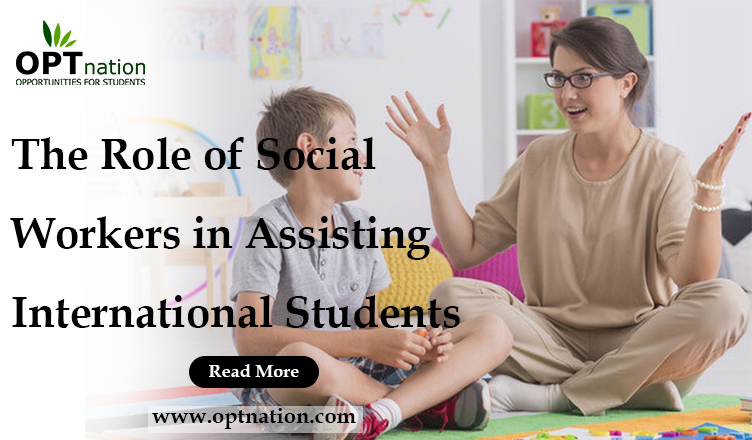It’s no secret that education transcends borders. Even a trip to a school in rural America, situated in a county that is 98% white will introduce you to a cultural melting pot, filled with students from all over the world.
Diversity in education is an excellent thing, providing universities with an important element of cultural variety that is beneficial to all students and staff. However, there are also unique challenges that come with being a student whose home life is located an ocean away.
Social workers help make that transition a little bit easier, ensuring that students from every background have the resources they need to achieve academic success. In this article, we take a look at how social workers play an important role in securing educational opportunities for international students.
What Do Social Workers Do?
Social workers are problem solvers. They step into complicated situations and help ensure that everyone involved has the opportunity to thrive. In the case of helping international students acclimate to a new school, they can serve as an important lifeline, providing information, resources, or just a sympathetic ear.
Below, we highlight several key services that international students receive from social workers.
Cultural Adjustment and Integration
Naturally, international students experience a degree of cultural shock that most of their peers can’t relate to. Higher education is always a bit of a shock. Most students find that they are on their own for the first time in their lives.
Just imagine navigating that experience in a foreign language. In a country that isn’t your own. This is the experience of virtually all international experiences.
Social workers play a pivotal role in assisting students in this aspect, providing support and guidance to facilitate cultural adjustment and integration.
By organizing orientation programs, workshops, and cultural events, social workers create safe spaces for international students to share experiences and learn about the host culture. They offer insights into local customs, traditions, and social norms, helping students develop cultural competence and bridge the gap between their home country and the new environment.
While this doesn’t completely eliminate culture shock, it can help prevent it from becoming a barrier to learning.
Emotional and Psychological Well-being
Leaving home can be psychologically challenging for any college student. However, most kids with families in the United States have easier access to their families than international students do. If you are going to school a few hours away from home, you can visit your family on the weekends, or make a phone call to your mom on the way to econ.
But what if your parents are an ocean away? What if their time zone is twelve hours ahead of yours? These factors can make even basic forms of family connections very challenging.
Obviously, even really excellent social workers can’t fix those problems. However, they can serve as vital allies in addressing the emotional and psychological challenges that international students deal with every day.
Support can range from counseling sessions, to simply lending a sympathetic ear from time to time.
Academic Support
Learning in a second language or unfamiliar culture is uniquely challenging. International students may struggle to manage different cultural expectations, or language barriers that can interfere with their ability to learn.
Schools have resources in place to help make these hurdles more manageable. Social workers can provide valuable support on that front, connecting international students with resources and peer support that can help bridge cultural and language gaps.
Language Barrier
We’ve already mentioned how language can serve as a significant barrier for international students. While most come to the country with a good understanding of the native tongue, there are still difficulties with learning, reading, and writing in a language that isn’t your own.
Not only can this have a big impact on the school, but it can also be socially limiting. Many international students struggle to make connections with students who aren’t from their culture.
Social workers can help with that problem on all fronts. Not only can they help the international student meet people from their native culture, but they can also facilitate events that allow international students to broaden their horizons, and meet people from all over the world.
Practical Support
There are also many logistical issues that can be harder for international students to manage. For example, housing. Obviously, most colleges have dorms. However, if the student is to live off campus, they may require help to find a location that is both accessible and affordable.
For international students with limited financial resources, social workers can also connect them with aid, or free resources that make their time at school a little bit easier.
Advocacy
Advocacy is ever and always at the heart of everything that social workers do. Their job is to help the people under their care succeed. While success can mean different things depending on the situation, the guidance counselor’s commitment to the people under their care is something that never changes.
At a broad level, that may include political activism. Advocacy for laws that make life easier for international students.
In the school setting, guidance counselors may also advocate to secure more resources and opportunities for international students.
Naturally, this will usually be situationally specific. Every international student is an individual with unique needs. Similarly, each university is unique in how it meets those needs. Good guidance counselors are skilled at identifying solutions that might benefit their case load and finding ways to achieve them.

